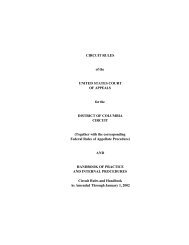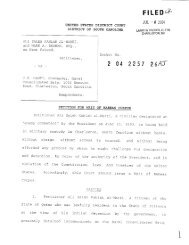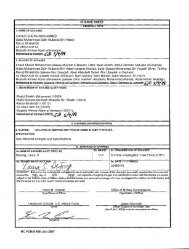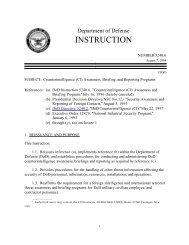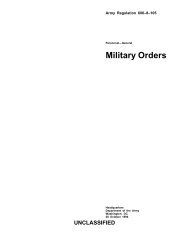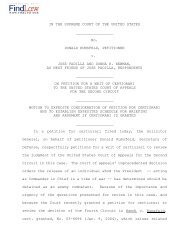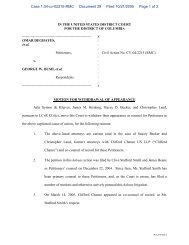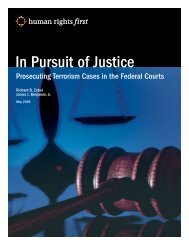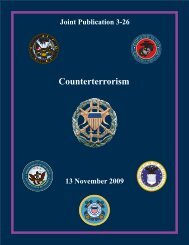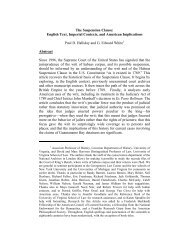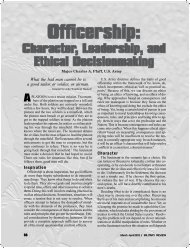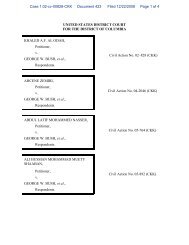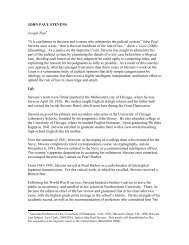Government Merits Brief - Hamdan v. Rumsfeld
Government Merits Brief - Hamdan v. Rumsfeld
Government Merits Brief - Hamdan v. Rumsfeld
Create successful ePaper yourself
Turn your PDF publications into a flip-book with our unique Google optimized e-Paper software.
21<br />
Eisentrager, 339 U.S. at 788. The President’s war power under<br />
Article II, Section 2, of the Constitution includes the inherent<br />
authority to create military commissions even in the<br />
absence of any statutory authorization, because that authority<br />
is a necessary and longstanding component of his war powers.<br />
See ibid. (noting that, “of course, grant of war power includes<br />
all that is necessary and proper for carrying these powers into<br />
execution”). The war power thus includes “the power * * *<br />
to punish those enemies who violated the law of war,” because<br />
that power is “part of the prosecution of the war” and “a furtherance<br />
of the hostilities directed to a dilution of enemy<br />
power and involving retribution for wrongs done.” Hirota,<br />
338 U.S. at 208 (Douglas, J., concurring) (citation omitted);<br />
see Yamashita, 327 U.S. at 11; Quirin, 317 U.S. at 28, 30.<br />
When the Constitution was written and ratified, it was<br />
well recognized that one of the powers inherent in military<br />
command was the authority to institute tribunals for punishing<br />
enemy violations of the law of war. For example, during<br />
the Revolutionary War, George Washington, as commander<br />
in chief of the Continental Army, appointed a “Board of General<br />
Officers” to try the British Major John Andre as a spy.<br />
See Quirin, 317 U.S. at 31 n.9. At the time, there was no provision<br />
in the American Articles of War for court-martial proceedings<br />
to try an enemy for the offense of spying. See<br />
George B. Davis, A Treatise on the Military Law of the<br />
United States 308 n.1 (1913). At a minimum, in investing the<br />
President with the authority to be Commander in Chief, the<br />
framers surely intended to give the President the same authority<br />
that General Washington possessed during the Revolutionary<br />
War to convene military tribunals to punish offenses<br />
against the law of war.<br />
The well-established executive practice of using military<br />
commissions confirms this conclusion. Throughout our Nation’s<br />
history, Presidents have exercised their inherent



